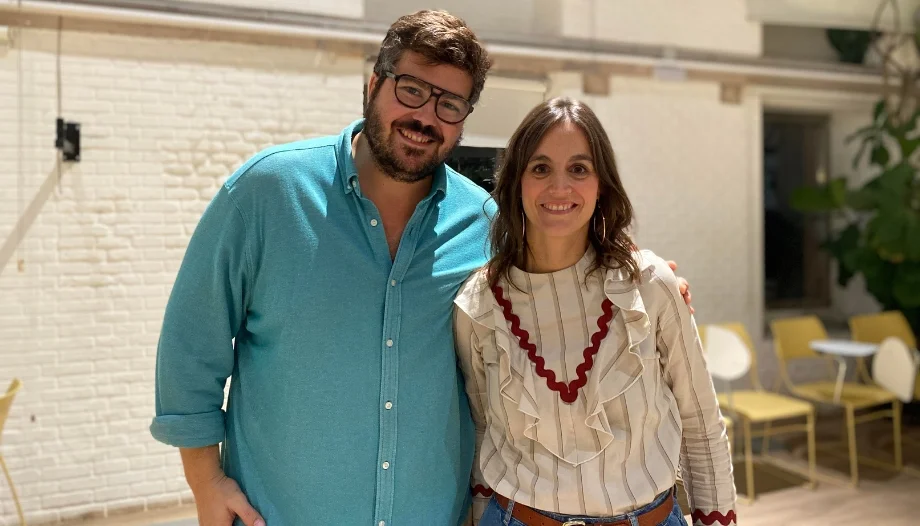"No heartbeat" is a mother's most dreaded phrase when having an ultrasound. "Everything happens so fast. Overnight suddenly you're not pregnant. You go through a lot of grief. And you are tempted to hide it so that no one finds out," says Olatz, mother of 3 children at Cielo e instagramer. Many mothers go through this same experience and decide to abide by the doctors' rules, keep quiet and keep the pain to themselves.
The funeral home In Sailingfor babies who died before or shortly after birth, organized a round table discussion giving voice to this grief. Different couples shared their testimony, defending life from the moment of conception as well as the dignity and meaning of the short life of their children: "When we think that God dreamed each of our children for life, is when we realize that dignity does not depend on the time we spend in this world" says José Manuel, husband of Olatz.
In pregnancies of no more than 14 weeks, the two options given are curettage (uterine aspiration) or through pharmacological treatment with misoprostol, pills for giving birth at home, experiencing severe pain. And the question many parents ask themselves: "What do I do with my child's body? The existing protocol assumes that, when you give birth at home, you are going to flush the baby down the toilet," says José Manuel.
Diana, a mother from Zaragoza, understood the importance of burying her son. "In Zaragoza they knew nothing about it. I had to study the regulations and I spent 12 days in administrative procedures until I was able to bury my son". She was about to throw in the towel but a priest encouraged her to continue: "Maybe your son is a Moses who has to open this path in Zaragoza". For Diana it is also a sign of dignity to name her son, which is why she had to confront the funeral home that wanted to put "abortive remains of Diana Herrera" on the tombstone.
Parents agreed that, on many occasions, they were treated like crazy. They even considered it. When they lose a child so prematurely, they face social incomprehension for mourning the loss of a child that does not exist for most people. José Manuel explains that the natural thing to do is to give their son the place he deserves: to mourn him, give him a name and bury him: "to live it any other way would be unnatural".
Coping with the pain of loss
Manuel says that everything invites us to try to minimize the pain, to run away from it: "But it is a mistake. The pain is there. It is time to be like the Virgin Mary. The Virgin when Jesus Christ was being crucified, scourged, tortured, did not say: 'It doesn't hurt so much, it will pass'. No. It was. And at that moment you assume that you have to be, and that it is something that is there, and that you are going to accompany it and that it is going to stay there, but that it has a meaning." She explains how Our Lady taught her to remain in that suffering.
Despite the pain involved, these parents speak with gratitude and show the fruits of having a child, even if it is unborn: "Pain commands you, it transforms you. When something like this happens, suddenly everything stops. It unmasks you. And you ask yourself, "What are my priorities?" says Manuel. They all agree that such an experience unites the family and changes the perspective: "This pain doesn't finish us off. It unites us and makes us look at something that is above us," says Olatz.
For José Manuel and Olatz, faith "has been everything" in the loss of their three children: "to go through the death of a child has been to enter into direct contact with Heaven. Because we have met a God who has done something better than avoiding suffering, which is to overcome it, to give it meaning and hope". For Olatz, having three children in Heaven is one more incentive to seek holiness and go there to meet them.
The message these parents give to families going through the same thing is: "Do not fall into the trap of minimizing the loss: each child has his or her value and place, and although the suffering may be intense in the short term, he or she deserves all our space, our time and our prayers. This mourning is not a failed project: it is the loss of a son who has gone to Heaven, and recognizing his dignity is fundamental to be able to accompany and honor that memory".
Finally, Olatz stresses the importance of understanding the child as a gift: "God allows us to be co-creators with Him. A child is a miracle. Let us not reduce it to a need, a right or a burden, but to a gift and a gift that is asked for and that can come if we are open to it. But always from the certainty that they are a gift and that we cannot appropriate this gift, which does not belong to marriage, but to God".







